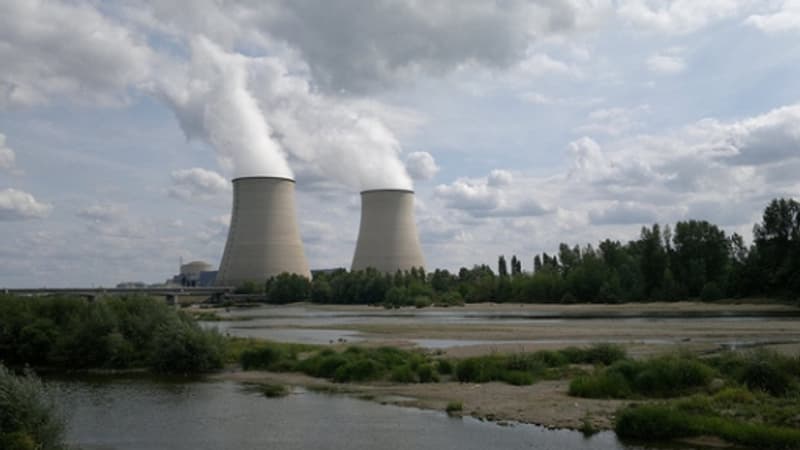After the chaotic debates in the National Assembly on pensions, nuclear energy reaches the table of the deputies. The Economic Affairs Committee will take up the atomic bill starting this Wednesday night. With one goal: to build nuclear power plants much faster, simplifying administrative procedures.
“The responsibility I have is to ensure that the administrative work does not delay the industrial project,” announced Agnès Pannier-Runacher, the Minister for Energy Transition who defends the text this Wednesday in the echoes.
Change of address
In the midst of the electoral campaign, Emmanuel Macron announced the relaunch of French nuclear energy with the construction of six new second-generation EPRs. These announcements were like a 180-degree turn. The president had first followed in the footsteps of François Hollande during his first five-year term.
The socialist had thus registered the closure of the Fessenheim power plant, the oldest in France, and ratified by law the limitation to 50% of nuclear energy in the energy sources that supply France. A strategy that bears the name of “energy mix”.
But given the rise in energy prices and the acceleration of global warming, the Government has changed its tone and is now making the return of the atom one of the pillars of its energy policy.
“Nuclear is an energy that costs relatively little, that does not emit CO2 and in which we have a lot of skills,” Guillaume Karasbian, chairman of the Economic Affairs Committee, explained to BFMTV.com at the beginning of February.
EPR in operation in 12 years
For this reason, the course has been set to simplify the administrative procedures necessary to enable the construction of new reactors in the long term. With one goal: to bring second-generation EPR to light by 2035, a very optimistic estimate.
To do this, establishment sites, such as Penly (Seine-Maritime) and Gravelines (North), must be exempt from planning permission. Compliance control would thus be the responsibility of the State services to allow the first earth movements to be carried out in 2027.
The bill also establishes that work on buildings that are not intended to receive radioactive substances can be carried out before the public consultation closes.
“We want to put an end to all possible safeguards without taking into account for a single moment environmental and urban regulations and the need for water to lower the temperature of the reactors while the drought is going to get worse,” laments the environmentalist deputy María Pochón.
A text that should be voted on without difficulty
The Senate, which was the first to address the bill, has already said yes to its developments and has lifted the 50% limit on nuclear power in the energy mix in France. The government should have no difficulty in approving this text. The presidential majority should say yes, as should the RN, the communists and the LR.
But La France insoumise and ecologists should be heard as the government tabled an amendment to merge the nuclear safety authority, which controls the facilities, and the nuclear safety and radiation protection institute, responsible for the expertise, at risk of conflict of interests.
To try to round the corners, the parisian claims that the prime minister hinted that it could be removed from the text to avoid blocking.
Source: BFM TV


